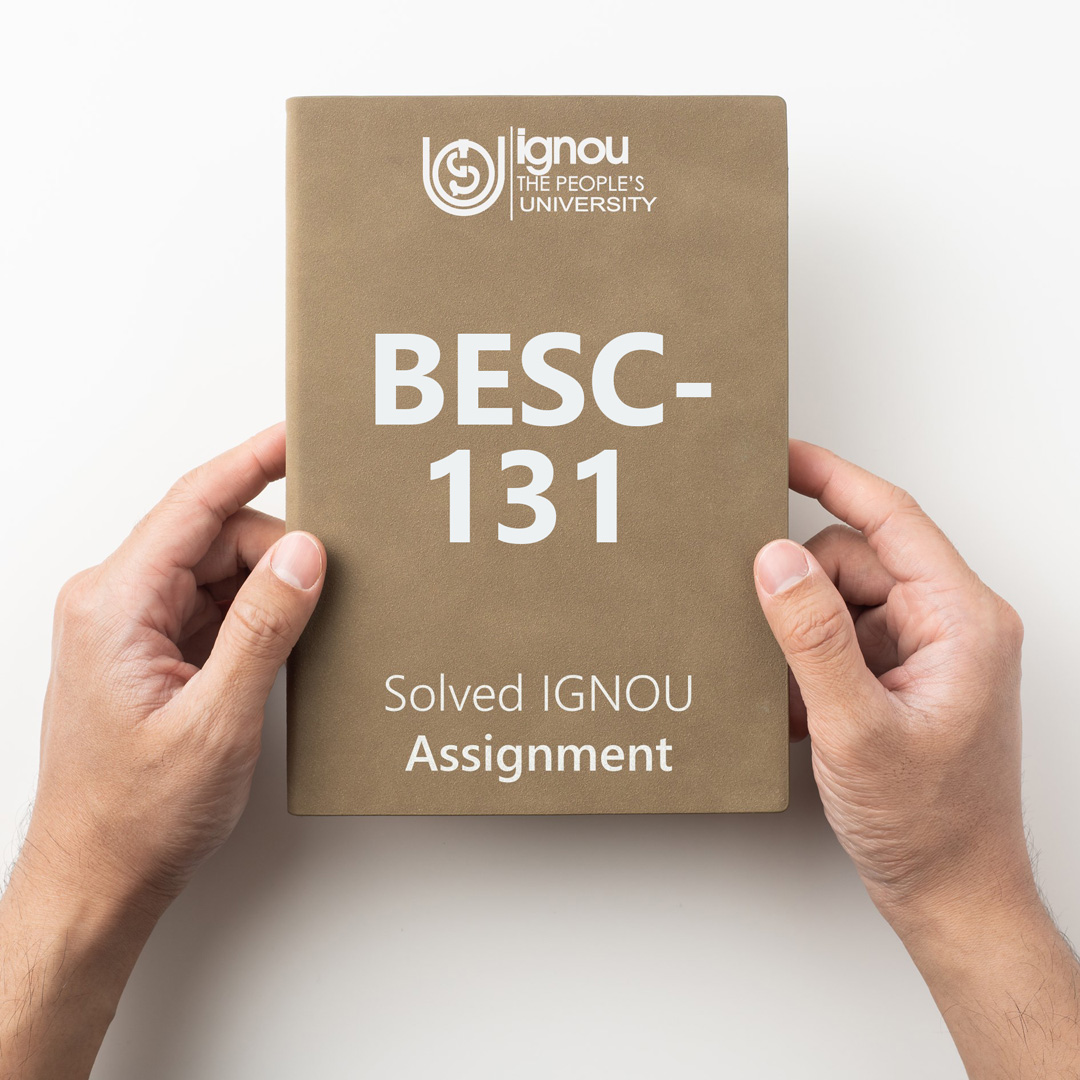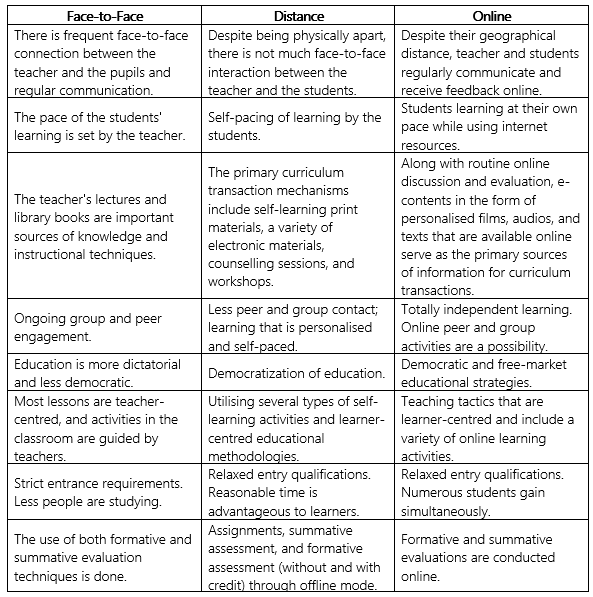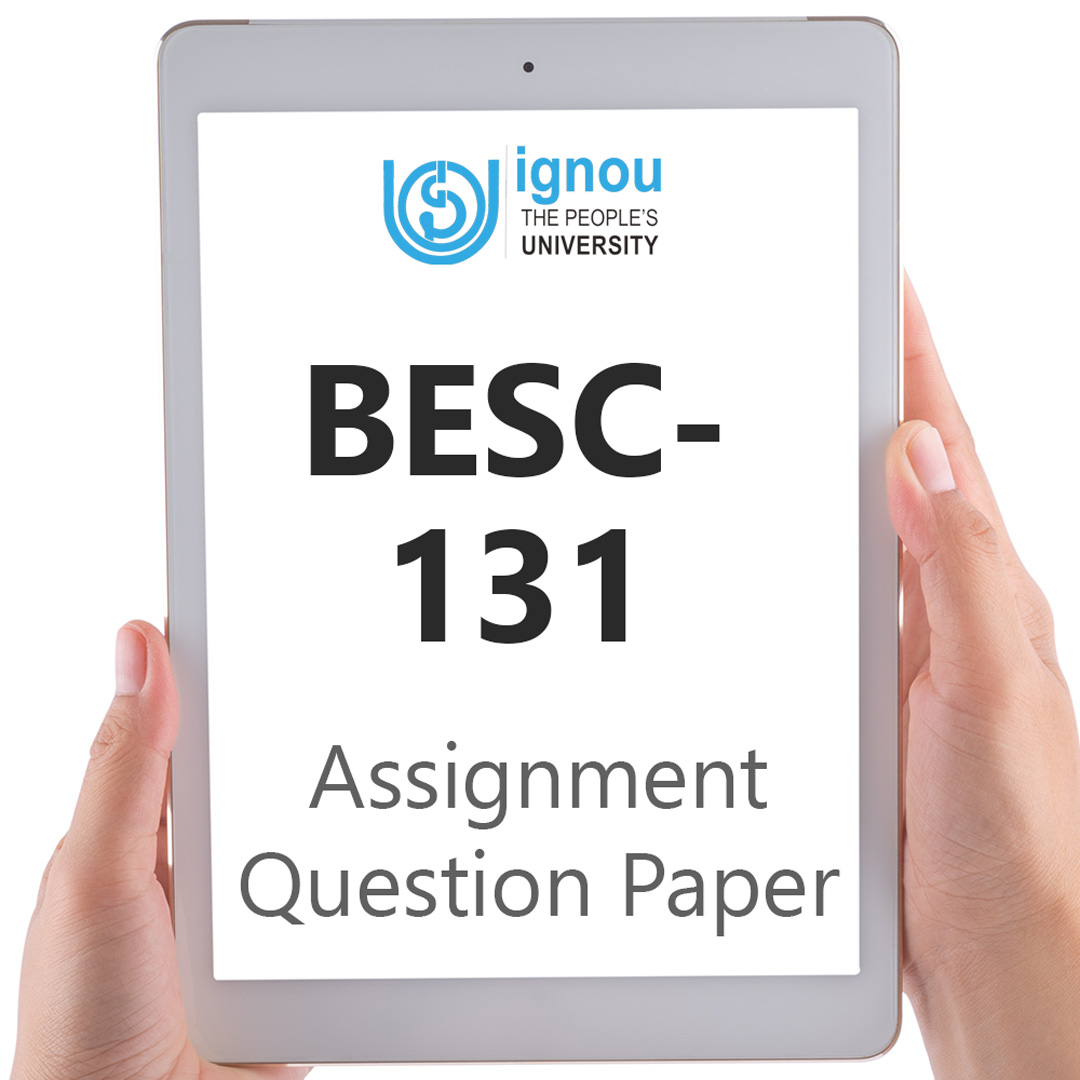If you are looking for BESC-131 IGNOU Solved Assignment solution for the subject Education: Concept, Nature and Perspectives, you have come to the right place. BESC-131 solution on this page applies to 2022-23 session students studying in BAG courses of IGNOU.
BESC-131 Solved Assignment Solution by Gyaniversity
Assignment Code: BESC-131/TMA/July 2022 and January 2023
Course Code: BESC-131
Assignment Name: Education: Concept, Nature and Perspectives
Year: 2022-2023
Verification Status: Verified by Professor
Total Marks: 100
There are three Assignments. All questions are compulsory. Total marks of the assignment questions are 100.
Assignment A
Answer the following in about 500 words each.
Q1) Explain the concept of social aim of education. Discuss arguments in favour and against the social aim of education. 20
Ans) Many educators place a greater emphasis on societal goals of education than on personal goals of education. The advancement of society will result in the advancement of the individual because they are a part of society. The idea that "An isolated individual is a fabrication of imagination" is held by renowned educationist Raymont illustrates the social purpose of education very well.
The social purpose of education in its narrow sense emphasises the state's maximum ability to regulate the person. A small number of people may be in charge of shaping the social norms, laws, and rules that apply to everyone in the society. The more inclusive definition of social purpose in education strikes a balance between society purpose and individual purpose. Education with a social focus is compared to democratic socialism. It implies that society and the individual will be treated equally. The perfect society will exist, and people will strive to make it better. At the same time, individual growth needs to be addressed by the society.
The following arguments are given in favour of the social aim of education:
Within the society, there is a person. A person's identity is known by the society in which they reside. As a result, society should be prioritised over the individual.
Animal impulses and tendencies are present in every newborn human. An individual becomes social by virtue of the society in which they live. As a result, society is valued more highly than an individual.
The society fosters an individual to reach his or her potential. As a result, each person should endeavour to improve society.
Culture's development, transmission, and preservation are the society's three main objectives. Therefore, each person should endeavour to address these three pressing societal issues.
The society is responsible for upholding each person's rights and meeting their needs. Therefore, it is the individual's duty to protect his or her culture and society.
"An isolated individual is a fabrication of imagination," said Raymont. People are therefore required to create a stable, well-organized society.
"United we stand, divided we fall," is a proverb. It illustrates the advantages of communal living. Therefore, each person should contribute to and live in a society that shares similar social values.
The following are the arguments against the social aim of education.
The social purpose of education violates psychological principles since the society does not take individual differences in human capacities and other factors of human development into account.
Individuals are the primary drivers of social development. Therefore, individuals should gain more value than the society.
The Social Aim of Education is interpreted narrowly to mean that society takes precedence over individuals. As a result, the social purpose of education has come under fire since people might not be recognised for their contributions to society as a whole.
Overemphasizing society and the state may threaten personal freedoms and morals. If society and the state are dominant over the individual, democratic principles of education and the values of equity and equality may not be promoted.
No society can advance without each member of that society growing personally. No society can advance if individual capabilities like intelligence, aptitude, attitude, creativity, and other similar qualities are ignored. As a result, when the individual goal of education is prioritised, the social goal of education can also be accomplished.
Q2) Discuss educational philosophy of Ari Aurobindo with special reference to aims of education, curriculum, pedagogy and relationship between teacher and students. 20
Ans) True education, in the opinion of Sri Aurobindo, encompasses not only the spiritual but also the logical, vital, and bodily. In other words, Integral Education emphasises the need of educating students in all five areas that relate to a person's primary activities: the physical, vital, cerebral, psychic, and spiritual. Aurobindo's approach to education is crucial in two ways:
Inculcating the five facets of the human person is the first step.
Second, education is important for the development of the whole society as well as the individual.
The growth of all humanity is the ultimate purpose of education. The guiding idea of this progression is "unity in diversity." The evolution of diversity is afterwards maintained by and assisted by this unity. Making people is education's ultimate goal.
Aims of Education
Sri Aurobindo asserts that the primary goal of education is to enable the developing soul to extract its best qualities and perfect them for a noble cause. He or she should be able to recognise that they are a part of the cosmic awareness within. He asserts that only when manas, chitta, and nerve are pure can senses be properly trained. Education also has the goal of fostering consciousness. He asserts that education should serve the following four purposes:
Chitta
Manas
Intelligence
Knowledge
All four of these stages should be developed in harmony by the teacher. It will encourage the growth of conscience. He asserts that "the true goal of education should be the utilisation of the Super mind for the development of an integrated human personality."
Idea on Curriculum
He believed that the curriculum should be restricted to a small number of texts and a fixed syllabus. All of the subjects that encourage the learners' intellectual and spiritual growth must be included. Education is not a goal in and of itself; it is a means to an end. Flexibility is necessary to accommodate varying needs. The curriculum's subjects ought to be able to inspire students. The curriculum should be engaging, incorporate life creativity, and include constructive exercises.
The following courses have been recommended by him for the curriculum:
Primary Stage: Mother Tongue, English, National History, Art, Painting, General Science, Social Studies, and Arithmetic.
Secondary Stage: Mother tongue, English, French, Arithmetic, Art, Chemistry, Physics, Botany, Social Studies, Physiology, and Health Education.
University Stage: Indian and Western philosophies, History of Civilization, English, Literature, French, Sociology, Psychology, History of Science, Chemistry, Physics, Botany, International relations and integration.
Vocational Education: Arts, Painting, Photography, Sewing, Sculpture, Drawing, Typing, Shorthand, Cottage Industries, Carpentry, Nursing, Mechanical and Electrical Engineering, Indian and European music, and dramatization.
Teacher and Students
Nothing can be taught, he thought, but everything can be learnt. The teacher is a facilitator, a helper, but not a taskmaster or an instructor. Instead of imparting knowledge, a teacher should show students how to build on the knowledge they already possess. It is improper to develop a child into the image that the elders desire, neglecting and killing the divine in the child in the process. Education ought to be individualised for each child.
Assignment B
Answer the following questions in about 250 words each.
Q3) Compare and contrast among the face-to-face, distance and online education system. 12
Ans) The comparison among face-to-face, distance and online education is as follows:
Q4) How philosophy and education are interrelated with each other? Explain. 12
Ans) Philosophy and education are related in a complementary and essential way. Numerous philosophical theories and guiding concepts have been created and frequently employed in educational discourses to implement them in education. It is true that education is the practical and action-oriented portion of spreading knowledge among students, whereas philosophy is the theoretical part of knowledge development. Education serves as a tool for reaching those goals, which are determined by philosophy. The relationship between philosophy and education is mutually reliant and essential. Education serves as a crucial component in the practical realisation of philosophy as a way of thinking about life. Educational difficulties are found in educational discourses, and they are connected in some manner to the philosophy that theorises them and suggests solutions. As a result, prior to comprehending educational objectives, the system, the organisation, and the teaching methods, it is crucial to grasp philosophy.
Creating a connection between philosophy and education, In his book "Principles of Education," Saxena underlined the following ideas:
Philosophy establishes the actual goal that education truly strives to achieve.
The purpose of life is determined by philosophy, which also offers appropriate and efficient guidance and supervision for education to accomplish the purpose.
While education applies these principles and ideas in the process of teaching and learning, philosophy offers the guiding principles and theories of learning.
True philosophy is the only way to put true education into practise (Spencer).
Numerous areas of education, including the curriculum, instructional strategies, roles for instructors and students, and teaching ethics, are influenced by philosophy.
Education and philosophy present opposite perspectives on the same issue, each of which is indicated by the other. They are similar to the two sides of a coin.
All-time great educators include thinkers like Plato, Dewey, Rousseau, Gandhi, and Aurobindo.
Since education puts philosophical concepts into practise, it can be said that "education is the dynamic side of philosophy."
Education is a means to an end, whereas philosophy establishes the goals of life.
Q5) Explain the concept of Basic Education system and pedagogy as per Gandhiji. 12
Ans) Gandhiji gave community life equal weight in the basic education plan. Community-based education fosters traits like teamwork, cooperation, and a sense of mutual aid. A youngster gains social adjustment skills through involvement in the community. In the basic education system, co-curricular activities like community life, mass prayer, shared meals, physical activity, teamwork, games, and sports, assignments (homework), cultural programmes, the commemoration of special days, and creative programmes are used to foster children's growth. Children engage in a variety of activities during residential education either individually, in teams or groups, or both. Cleaning the room and the surrounding area, eating, using the restroom and urinal, as well as getting water, cooking, watering plants, washing clothing, having a bath, etc. are among these.
In short, the basic education system provided instruction that was connected to daily life. By doing this, values like orderliness, independence, hard work, teamwork, cooperation, endurance, loyalty, good manners, honesty, discipline, obedience, punctuality, and physical education-related games, exercises, and sports are also organised with the goal of fostering health-related values in children. National holidays, birth and death anniversaries, parents' (guardians') days, self-education days, environment days, world population days, and other holidays are observed in this education. At certain times, cultural events are organised. In addition, Gandhiji's community service initiatives, such as cleaning up village roads and other areas, preventing untouchability, fostering communal harmony, banning alcoholic beverages, promoting Khadi, adult education, upliftment of women, health education, caring for lepers, and treating addiction, are commemorated in elementary schools as well as in the neighbourhood and hostels. All of these aid in the children's moral and other value development. He advocated for the delivery of fundamental education in the student's mother tongue.
Q6) Explain the causes of inequality in education. 12
Ans) The causes of inequality in education are as follows:
Prevailing Social Disparities: Inequality in the educational system is a result of a limited interpretation of the dominant societal divisions based on race, caste, class, culture, and religion, among other factors.
Gender Disparity: Gender-related social norms, traditions, superstitions, etc. have an impact on how people of different genders are educated. Compared to boys, girls and transgender kids have lower socioeconomic and educational standings.
Difference in Physical and Mental Ability: Children with disabilities or physical, sensory, or intellectual impairments frequently lack access to proper educational facilities. Inequality in educational opportunity or success results from this.
Difference in Home Environments: Gross educational inequality is caused by differences in home environments. A child's family background influences both his or her educational goals and motivations.
Standard of Institutions: Children who attend high-standard institutions typically perform better academically than those who attend low-standard institutions. Therefore, the disparity in institution quality contributes to educational inequality.
Poverty: The result of poverty is a huge educational inequality. Poor parents are unable to pay for their children's tuition and study materials, and as a result, their kids either drop out of school early or do poorly while still enrolled.
Regional Imbalances: Due to historical, geographical, political, and other factors, not all of India's regions have seen the same level of development. Additionally, there are significant disparities between rural and urban areas in terms of their growth and development. Compared to developed countries, underdeveloped regions provide fewer options for education.
Lack of Consciousness of People: The lack of awareness that people have for education leads to educational inequity. There is a lot of educational inequality because of conservative attitudes, inaccurate concepts, incorrect views, and ignorance about education.
Faulty Educational Administration: The degree of educational inequality is not appropriately reduced as a result of corruption, nepotism, and poor educational administration. Additionally, the incorrect application of educational plans and policies worsens existing forms of educational inequality.
Assignment C
Answer the following questions in about 125 words each.
Q7) Briefly explain the essential features of Experimental Method. 6
Ans) The essential features of Experimental Method are as follows:
Psychological laboratory: There needs to be a psychological laboratory with all the necessary tools.
Experimenter: There is an investigator.
Subject: There is a subject or subjects on whom the experiment is performed.
Stimulus: By "stimulus," we mean any outside environmental influence that causes an organism to act or react.
Response: Response refers to a response to a stimulus. It can also be described as an obvious change in behaviour. Response is the name for the discernible shift in behaviour.
Variables: Typically, we employ variables, either dependent or independent, when conducting an experiment. We conduct an experiment in a controlled environment, and we can determine the effect by looking at how the variables change.
Q8) Differentiate between classical and operant conditioning. 6
Ans) The differences between classical and operant conditioning are as follows:








